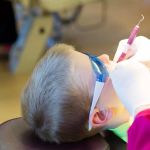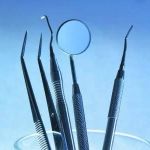- 1. Importance of Caring for Braces
- 2. Daily Care Tips for Braces
- 3. Common Issues and How to Fix Them
- 4. Foods to Avoid When Wearing Braces
- 5. How to Properly Clean Your Braces
- 6. The Importance of Regular Dental Visits
- 7. What to Do in an Emergency with Braces
1. Importance of Caring for Braces
Braces are an investment in your oral health, and proper care is essential for ensuring the treatment works effectively. Caring for braces helps prevent complications such as plaque buildup, tooth decay, and gum disease. By maintaining a proper oral hygiene routine, you can achieve a beautiful smile once your braces are removed. For the best results, it’s important to follow orthodontic care instructions carefully and be mindful of your daily habits.
2. Daily Care Tips for Braces
Daily care for braces is crucial in preventing discomfort and ensuring that your teeth and braces remain clean. Start with brushing your teeth after every meal using a soft-bristled toothbrush and fluoride toothpaste. It’s also important to floss daily with orthodontic flossers or threaders to remove food particles between the brackets and wires. In addition to brushing and flossing, using a mouthwash that is specifically designed for braces can help reduce bacteria and keep your mouth fresh.
3. Common Issues and How to Fix Them
One common issue with braces is discomfort or soreness, especially after adjustments. To alleviate this, you can use over-the-counter pain relievers or rinse with warm salt water. Another problem might be a loose bracket or wire, which can be uncomfortable or even cause injury to your mouth. If this happens, use a clean pair of tweezers to reposition the bracket or wire, or visit your orthodontist as soon as possible for a professional repair.
4. Foods to Avoid When Wearing Braces
Some foods can damage your braces or get stuck between the brackets, making it harder to clean your teeth. It's important to avoid hard, sticky, or chewy foods such as caramel, gum, popcorn, and hard candies. Additionally, crunchy foods like nuts, raw vegetables, and ice should be avoided as they can break or loosen your braces. Instead, opt for softer foods that are easier to eat and less likely to cause problems.
5. How to Properly Clean Your Braces
Cleaning your braces requires more effort than regular oral hygiene due to the brackets and wires. After every meal, brush your teeth thoroughly, paying extra attention to the areas around the braces. Use a fluoride toothpaste and a special toothbrush designed for braces to ensure you’re cleaning all surfaces. Additionally, use an interproximal brush or water flosser to remove debris from between the brackets. If you’re unsure about the best cleaning techniques, ask your orthodontist for personalized advice.
6. The Importance of Regular Dental Visits
While taking care of your braces at home is essential, regular visits to your orthodontist and dentist are also key to the success of your treatment. Your orthodontist will monitor the progress of your braces and make necessary adjustments to ensure they are working as efficiently as possible. Routine check-ups with your dentist are equally important for addressing other oral health concerns such as cavities or gum disease that can affect your braces treatment.
7. What to Do in an Emergency with Braces
Braces emergencies can happen, whether it’s a broken wire or a lost bracket. In these cases, it's important to stay calm. If a wire is poking you, you can use a pencil eraser to push it back into place or use a small piece of wax to cover the sharp edge. For a lost bracket or rubber band, try to schedule an emergency appointment with your orthodontist as soon as possible. Knowing what to do in an emergency can help prevent further damage and discomfort.
By following these care tips and being proactive about your orthodontic treatment, you can ensure that your braces work effectively and your smile remains healthy throughout the process. If you're looking for products to assist with caring for your braces, visit Dentistry Toothtruth for more information.







 Edmond Dental Center: Michael Chandler, DDS5.0 (404 review)
Edmond Dental Center: Michael Chandler, DDS5.0 (404 review) Ramsey Dental Center4.0 (242 review)
Ramsey Dental Center4.0 (242 review) Chris Wong DDS4.0 (305 review)
Chris Wong DDS4.0 (305 review) Smile Academy Pediatric Dentistry4.0 (48 review)
Smile Academy Pediatric Dentistry4.0 (48 review) Glendale Holistic Dentistry - Los Angeles Dentists Group4.0 (19 review)
Glendale Holistic Dentistry - Los Angeles Dentists Group4.0 (19 review) Willamette Dental Group - Puyallup4.0 (117 review)
Willamette Dental Group - Puyallup4.0 (117 review) The Importance of Oral Health Education During Pregnancy for a Healthy Pregnancy
The Importance of Oral Health Education During Pregnancy for a Healthy Pregnancy Best Tips for Brushing Your Teeth Properly for Healthy Gums: Essential Techniques for Oral Health
Best Tips for Brushing Your Teeth Properly for Healthy Gums: Essential Techniques for Oral Health Why Skipping Dental Checkups Can Lead to Bigger Oral Health Problems
Why Skipping Dental Checkups Can Lead to Bigger Oral Health Problems Advantages of Porcelain Dental Restorations
Advantages of Porcelain Dental Restorations How Can Diabetes Cause Tooth and Gum Problems? Preventing and Managing Oral Health Issues
How Can Diabetes Cause Tooth and Gum Problems? Preventing and Managing Oral Health Issues Healthy Habits for Promoting Good Oral Health and Hygiene: Tips for a Healthy Smile
Healthy Habits for Promoting Good Oral Health and Hygiene: Tips for a Healthy Smile